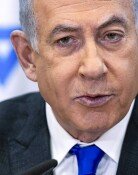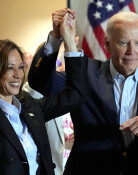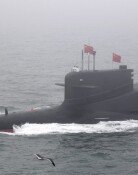Test Shows Holes in Emergency System
Amid the threat by North Koreas missile launches, there is growing criticism if the national emergency system has unacceptable loopholes.
Seoul has recognized it is within the range limit of the Norths long-range guided projectiles. Even if we consider it as a threat to our national security, we have no efficient means to respond to a crisis, said a government official.
As this paper confirmed, the 33 standard emergency manuals composed by the government do not include countermeasures for Pyongyangs missile threat.
Against this backdrop, South Korea might be helpless against North Korean Scud missiles.
Nevertheless, the initial report to president Roh was only made at 5:01 a.m., one and a half hours after the first missile was launched at 3:32 a.m. on July 5, possibly due to a lack of accurate time serial manuals. Cheong Wa Dae explained that it was supposed to report to the president after the Taepodong 2 missile was fired.
Seo Ju-seok, the chief presidential advisor for national security, said in a radio show, At 4:00 a.m., the situation was not that serious. However, when Taepodong 2 was fired, the situation got serious in real terms.
Given that the Taepodong 2 and the other missiles were all launched in a set by Pyongyang, it should have been reported to the President when the first one was fired.
Moreover, considering the late meeting of the standing committee of the National Security Council (NSC) at 7:30 a.m., the South Korean government seems to feel complacency because it deemed that the missile fire by the North was probably aimed at Japan or the U.S.
Although having detected the signs of missile launches beforehand, the government did not announce it to Korean citizens. It did not take proper measures in order to secure public safety, even though it was allegedly aware of the moves before the outside news agencies reported the fact that Pyongyang imposed a port embargo on North Korean ships.
What is worse is that Kim Seung-gyu, the director of the National Intelligence Service (NIS), was on a business trip abroad and scheduled to be back on July 6, which indicates the intelligence authorities might not have been aware of the missile test beforehand.
There was severe criticism over the lack of information and late response to the incident during the meeting of the Unification, Foreign Affairs Committee, the National Defense Committee, and the Intelligence Committee at the National Assembly. Particularly, the lawmakers from the Grand National Party strongly required sanctions against the communist regime, including a halt in humanitarian aids.
The Intelligence Committee made denunciations over the absence of NIS director Kim. Lawmakers argued that it clearly demonstrated the lack of seriousness of the government. Before finishing his 10-day itinerary in Central Asia, Kim returned in a hurry that afternoon but missed the committee meeting.
Defining this situation as a comprehensive crisis, the major opposition party called for a council on national emergency where both of the ruling and opposition party members and senior statemen convene to discuss a security issue.
It is considering investigations of the national security system and decided to urge the government to reshuffle some of its cabinet members such as the ministers of unification, foreign affairs, national defense, the national intelligence agency, and the presidential advisor for the national security.
taewon_ha@donga.com







